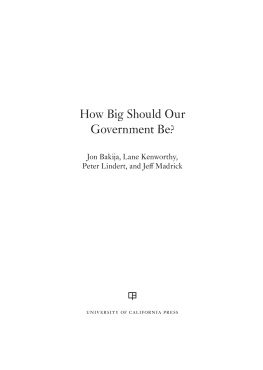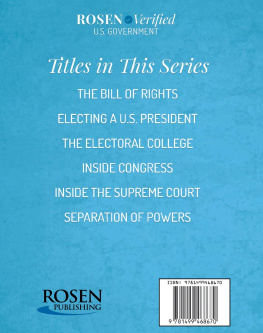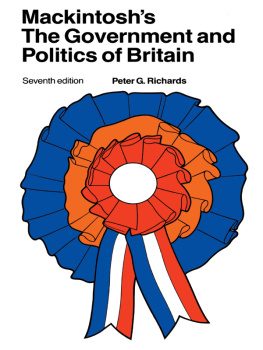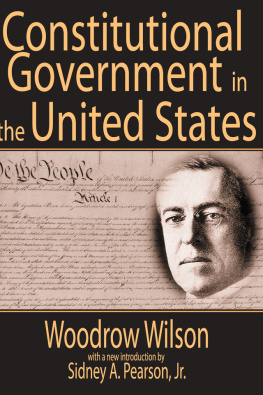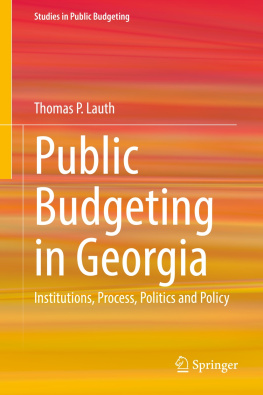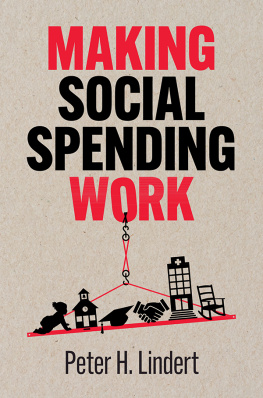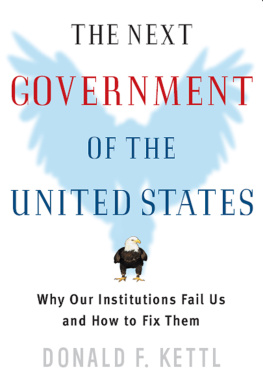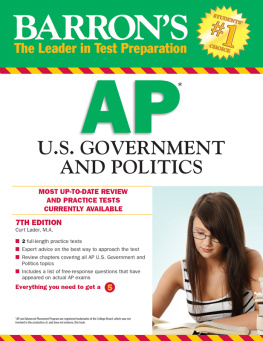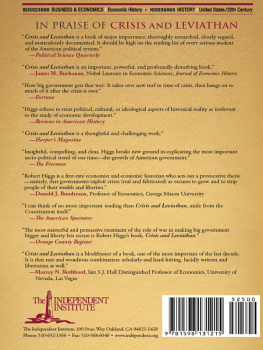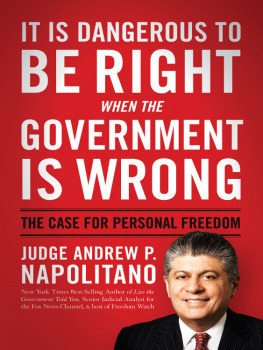1.1.
2.1.
2.2.
2.3.
2.4.
2.5.
2.6.
3.1.
3.2.
3.3.
3.4.
3.5.
3.6.
3.7.
3.8.
3.9.
2.1.
PREFACE
Just after he was elected president in 2008, Barack Obama called for a bipartisan deficit commission to develop a set of recommendations to restore fiscal responsibility to the nation. At the time, the budget deficit of 10 percent had alarmed the country and balancing the budget became a national goal. Reducing the deficit has continued to be a major issue in American political life, and there has been a huge amount of misinformed national attention paid to this subject.
In fact, the deficit was overwhelmingly caused by the stunning collapse of national income due to the recession of 2008, not by government spending. However, it was a small matter to the public discourse that, if the cause of the deficit was a reduction in tax revenues, the cure was to raise the national economy from recessionary levels and grow it again. Because even President Obama apparently agreed that government expenditure was significantly to blame for the deficit, there was only modest debate over the issue. National anger and alarm focused on reducing federal spending, which was a demand that had been simmering since the 1970s and had finally reached a boiling point. Obamas National Commission on Fiscal Responsibility and Reform focused its attention on sharply cutting government spending, both in the short term and in the long term.
This brief book is a response to the poorly informed national debate over the size of government. As its authors, we hope to broaden the nations understanding of how big government actually should be by presenting the best research on the subject.
The glaringly misinformed recommendation of the Obama commission was to reduce federal spending to 21 percent of gross domestic product (GDP). Federal spending had spiked to about 25 percent at the depth of the recession, while federal tax revenues had collapsed to about 15 percent of GDP. The 21 percent ceiling the commission proposed was not based on any serious economic or historical analysis. The two chairs of the commission, Erskine Bowles, a Democrat who had served as president Clintons chief of staff, and Alan Simpson, a conservative Republican who had retired from the Senate in 1997, had no serious training in economics. The eighteen members of the commission were almost all members of Congress.
The rationale Bowles and Simpson gave for the 21 percent ceiling was that this had been the average level of federal government spending as a proportion of GDP since 1970. Yet such a straitjacket makes no sense. In the coming years, the nations citizens will get older, so Social Security and Medicare will necessarily become more costly. The government has adopted a drug plan for seniors. Its infrastructure needs are soaring. A growing consensus demands pre-K for all children. And it is spending enormous sums on homeland security. Government spending has to grow to meet these and other basic needs.
To be sure, there were somewhat cooler and better-informed analyses. A second commission, sponsored by the new Bipartisan Policy Center, which was created by former Senate majority leaders, proposed a higher ceiling for spending and suggested raising more in taxes than the Obama commission did. But this commissions proposals were also limited by politics. A third commission, sponsored by the National Academy of Sciences, was better grounded but still abided by limits on government that arent justified by serious research.
A national instinct that small government is always better than large government is grounded not in facts but rather in ideology and politics. Over the years since the Obama commission was created, opposition to so-called big government policies has continued. The federal deficit fell from 10 percent to 3 percent as the economy grew, yet cries to reduce government were undiminished. The Committee for a Responsible Federal Budget was probably the most prominent of the foundations dedicated to frightening America into reducing its spending, and to this day it continues to warn the nation to cut social programs, notably Social Security and Medicare. Small government is a campaign centerpiece for most of the candidates running for the Republican Partys 2016 presidential nomination.
As the reader will see in the following pages, the very history of America, a country whose skepticism of government lies deep in its national character, should rebut fears that the government would grow too large. The federal government adopted new responsibilities throughout Americas history, and its size grew with no appreciable effect on the economy. It levied progressive taxes and payroll taxes as well as sales taxes, and prosperity has increased at the same historically rapid rate since the late 1800s, interrupted only by business cycles.
The need for more government to help us maintain a just society and a prosperous economy becomes more evident by the day. Today more than ever before, low-income Americans are more dependent for their survival on government social programs. Education, infrastructure, technology and research, financial and safety regulations, and job creation will all require more government investment in the future. Spouses need programs to allow them to work while they raise children. Our high level of poverty, especially child poverty, is a stain on the nation.

